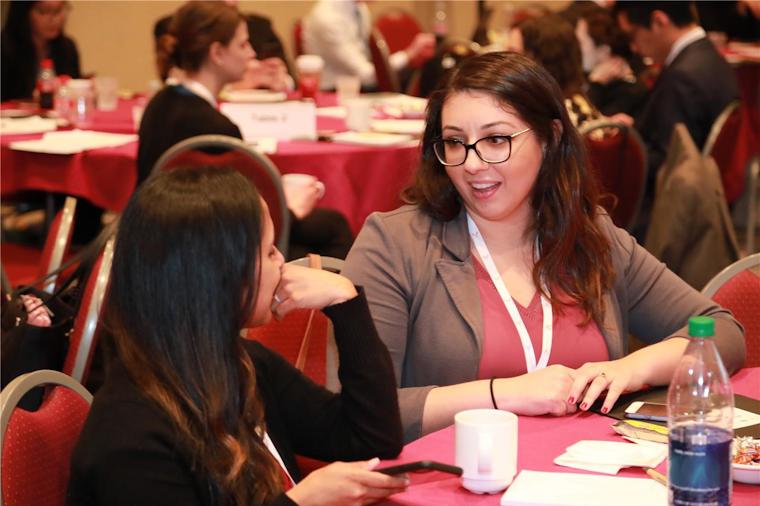The Journal of Graduate Medical Education (JGME) disseminates scholarship and promotes critical inquiry to inform and engage the graduate medical education community to improve the quality of graduate medical education. It is a peer-reviewed, editorially independent journal published by the ACGME. Now celebrating its 10th year of publication, JGME’s presence at the Annual Educational Conference has grown, and this year there are several ways to connect with JGME editors, staff members, and more at next week’s conference in San Diego.
Visit JGME In the Exhibit Hall at Booth 219
The journal’s staff will have a booth in the Exhibit Hall again this year where attendees can review past issues, chat with staff members, and get some swag, including free copies, reprints, notebooks, pens, and more! The Exhibit Hall will be in the Marriott Marquis, and hours are as follows – come see us!
- Thursday, February 27 from 5:30-7:30 p.m.
- Friday, February 28 from 9:30 a.m.-3:30 p.m.
- Saturday, February 29 from 6:30 a.m.-3:30 p.m.
Popular Conference Sessions
This year’s conference schedule includes two workshop sessions presented by JGME. These were extremely popular during conference registration, so there may only be limited space available.
SES016: Lies, Damned Lies, and Surveys: Designing Surveys to Produce Meaningful Data for Assessment
Friday, February 28, 12:45-2:00 p.m., Hilton Bayfront, Indigo GH
Mark Twain famously expressed his disdain for statistics when he said, “There are three kinds of lies: lies, damned lies, and statistics.” Twain was making the point that statistics can have persuasive power, even when used inappropriately. The same can be said of surveys—results from a poorly designed or poorly executed survey can have considerable persuasive power. Flawed survey results can send graduate medical educators off to search for fixes to nonexistent problems, negatively influence policy decisions, and fill the scientific literature with unsubstantiated knowledge claims that take years to correct, if they are ever corrected. Because medical educators and researchers use surveys nearly every day—to assess residents/fellows, faculty members, curricula, and programs—understanding of the elements of good survey design is critical. In this session, JGME Deputy Editors and the Editor-in-Chief will discuss strategies to design and implement high-quality surveys. Understanding survey design starts with understanding the cognitive and motivational processes that guide how respondents make sense of survey questions and how to apply this understanding to improve survey quality. Participants will practice a seven-step process that focuses on item development and pretesting, before survey implementation, with use of a survey review checklist. Participants will also design survey questions for a sample educational construct. This interactive session will allow participants to practice key steps useful for improving surveys. The presenters will demonstrate that Mark Twain’s lament, when applied to surveys, can be resolved through evidence-based survey design.
SES060: The Best Medical Education Papers from 2019: Editors’ Hot Picks
Friday, February 28, 4:15-5:30 p.m., Hilton Bayfront, Indigo BF
Medical educators are challenged by the increasing growth in medical education publications and other information sources. Yet many papers, while potentially confirming past findings, do not necessarily move the field forward or are small pilots with less validity. Over the past year, JGME editors collected papers from a large variety of sources in search of those papers most likely to (1) be relevant to GME, (2) have “true” findings, and (3) be of practical use today and tomorrow. In this session, JGME editors will present their choices for the eight best papers in 2019, published in non-JGME journals and venues. A handout with the papers, their relevance and potential impact, and time for discussion will be available. All levels of medical education expertise—from entry level to experienced senior—can benefit from this session.
Like other ACGME staff members, badge ribbons will identify JGME staff members (and Editorial Board members) as they walk around the conference – they’re ready to connect!








